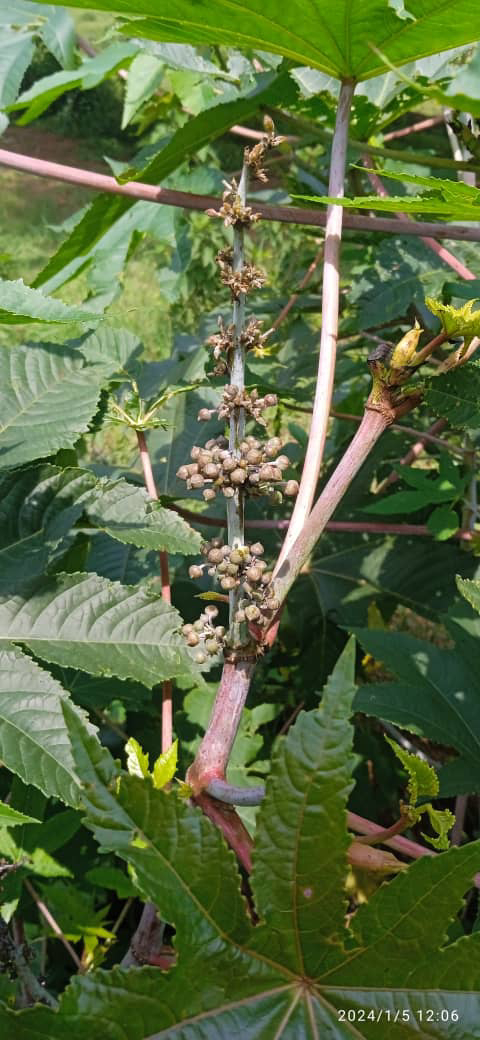Intensive production and commercialization of biodiesel from edible-grade sources have raised some critical environmental concerns. In order to mitigate these environmental consequences, alternative oilseeds are being investigated as biodiesel feedstocks. Castor (Ricinus communis L.) is one of the most promising non-edible oil crops, due to its high annual seed production and yield, and since it can be grown on marginal land and in semi-arid climate. click here to continue reading
These are the types of weeds that attack castor crops and their remedies: Types of Weeds: * Broadleaf Weeds: * Amaranthus viridis * Boerhaavia diffusa * Celosia argentena * Portulaca oleracea * Trianthema portulacastrum * Digera arvensis * Corchorus olitorius * Cyanotis cucullata * Cleome viscosa * Commelina bengalensis * Croton sparsiflorus * Parthenium hysterophorus * Grasses: * Chloris barbata * Cynodon dactylon * Dactyloctenium aegyptium * Bracharia reptens * Panicum flavidum * Sedges: * Cyperus rotundus * Cyperus esculentus Remedies : & Cultural Practices: * Intercultivation: Using tractor or bullock-drawn blade harrows, especially 20 to 60 days after seeding, is effective. * Manual Wee...

Comments
Post a Comment